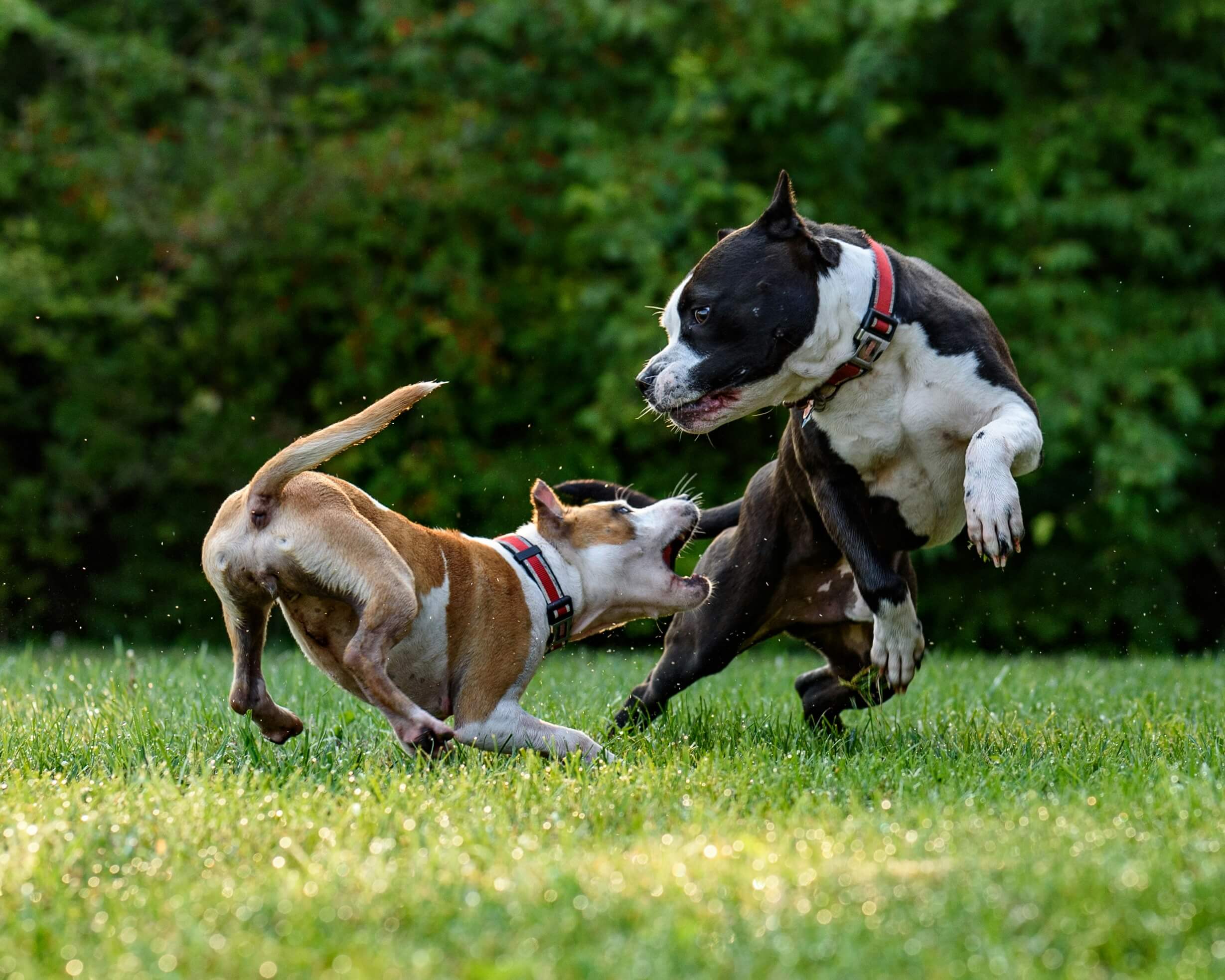It’s one of every pet parent’s worst fears: being confronted by an aggressive dog. Whether it’s during a neighborhood walk or an unexpected moment at the park, knowing how to stop a dog attack can make all the difference. As a certified pet blogger and lifelong dog lover, I’ve worked with behaviorists, trainers, and veterinarians to bring you a calm, expert guide on handling these intense moments—without panic.
👀 Signs a Dog Is About to Attack
Understanding dog attack body language is the first step in prevention. Here are common red flags:
- Stiff posture and intense staring
- Growling, snarling, or raised hackles
- Lips curled back, showing teeth
- Low, stiff tail wag (not friendly)
- Sudden freezing or lunging behavior
If you notice these signs a dog is about to attack, stay alert and avoid sudden movements.
🚨 In the Moment: How to Act Around a Threatening Dog
When an aggressive dog approaches:
- Stay calm. Don’t scream or run.
- Avoid eye contact. Look slightly away to reduce perceived threat.
- Use a firm, confident voice: Say “No!” or “Back!”
- Put an object between you and the dog: A bag, jacket, or even a stick can help.
Never turn your back. Knowing how to act around a threatening dog can de-escalate the situation.
🛡️ Self-Defense Against Dog Attacks
If an attack happens despite your efforts, your priority is to protect vital areas—especially your face, neck, and chest. Here’s what you can do:
- Use your non-dominant arm to shield yourself
- Try to stay on your feet—falling increases vulnerability
- If knocked down, curl into a ball and protect your head and neck
Products like dog deterrent spray or ultrasonic trainers can be carried for dog attack prevention during walks. I always keep one clipped to my leash pouch—just in case.
👶 How to Protect Your Child from a Dog Attack
Teaching kids how to behave around unfamiliar dogs is critical. Tips for parents:
- Teach children not to run, scream, or hug unknown dogs
- Show them how to “be a tree”—stand still, arms crossed
- Practice safe greeting rituals: ask permission, let the dog sniff first
When walking with a stroller or toddler, place yourself between the child and the dog. Consider a whistle or dog horn for added protection.
🤕 What to Do After a Dog Bite
Even minor bites require attention. Follow these dog bite first aid steps:
- Clean the wound immediately with soap and water
- Apply pressure if bleeding, then use an antiseptic
- Seek medical care—even small bites can cause infection
- Document the incident with photos and notes
Knowing what to do after a dog bite could prevent complications and help you build a report.
📝 Legal Steps After a Dog Attack
Depending on where you live, there may be laws protecting victims. After immediate care:
- File a report with animal control or local authorities
- Obtain contact details of the dog owner and witnesses
- Ask if the dog has a vaccination record, especially rabies
- Consider consulting a legal expert to understand your rights
Reporting a dangerous dog can prevent future incidents and ensures public safety.
🐾 How to Break Up a Dog Fight
If you're witnessing dogs fighting:
- Don’t grab collars— it could redirect aggression to you
- Try using a loud noise, spray bottle, or air horn
- Use a barrier like a large piece of cardboard or trash can lid
- If it's safe, wheelbarrow technique (lifting hind legs) may help separate them
Check out our post on positive training techniques to reduce aggressive dog behavior long-term.
✅ Summary: Stay Calm, Be Prepared
Most dog attacks are preventable with awareness and education. By learning how to stop a dog attack, you're protecting yourself, your pets, and others. Trust your instincts, stay calm, and equip yourself with the right tools and knowledge. 🐕🦺
Want to prepare even more? Check out our favorite deterrents and gear for walks.
Frequently Asked Questions (FAQs)
1. What are the signs a dog might attack?
2. How can I stop a dog attack without hurting the dog?
3. What should I do if my child is with me during a dog attack?
4. How do I report a dangerous dog?
5. Should I see a doctor after a dog bite?
6. Can I legally defend myself during a dog attack?

About SniffnTail
SniffnTail is your go-to destination for everything pets. From helpful advice, tips, and insights to thoughtfully selected products and resources, we’re here to support pet owners at every stage of their journey. Whether you're caring for a playful pup, a wise old cat, or anything in between, SniffnTail offers tools and knowledge to make pet parenting easier and more joyful.
Related Articles
 Training & Behavior • 7 min read
Training & Behavior • 7 min readHow to Train a Puppy Not to Bite Hands: Gentle, Effective Tips
Learn how to stop your puppy from biting hands with expert-backed, kind methods. Discover the difference between teething and aggression, and explore top techniques for bite inhibition puppy training.
 Training & Behavior • 7 min read
Training & Behavior • 7 min readBorder Collie OCD & Compulsive Behaviors: Signs, Causes, and Calming Treatments
Discover signs of OCD and compulsive behaviors in Border Collies, from tail chasing to repetitive barking, and explore calming treatments that work.
 Training & Behavior • 7 min read
Training & Behavior • 7 min readBorder Collie Separation Anxiety: The Working Dog's Dilemma
Learn how to manage separation anxiety in Border Collies, a high-energy breed prone to job-oriented anxiety when left idle. Discover expert tips on mental stimulation, daily routines, and effective bonding.

